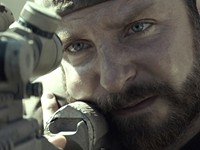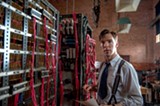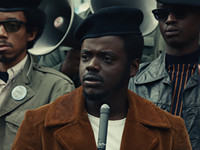[
{
"name": "500x250 Ad",
"insertPoint": "5",
"component": "15667920",
"parentWrapperClass": "",
"requiredCountToDisplay": "1"
}
]
In the past, Hollywood usually reflected American anti-intellectualism by showing professors as unworldly, unmanly, possibly even impotent buffoons, which makes "A Beautiful Mind" of a decade or so ago something of an anomaly. Like that movie, however, the two most recent depictions of professors on the screen, though also based on fact, feature two brilliant scientists who, despite their success, suffer serious, even disabling afflictions -- schizophrenia for John Nash in the American picture, ALS for Stephen Hawking in "The Theory of Everything," and now, apparently some form of high functioning autism for Alan Turing, the protagonist of "The Imitation Game."
"The Imitation Game" chronicles the heroic work of a team of experts -- linguists, cryptographers, mathematicians, even a chess champion -- in unraveling the secrets of the fiendishly successful German cypher machine, Enigma. Most of the action takes place at Bletchley Park, now famous as the headquarters of much of the secret war, including the efforts to break the German code. The time scheme also moves back and forth through various stages in the life of Alan Turing (Benedict Cumberbatch), showing his success as the leader of the code-breakers, his school days, and his arrest and conviction in 1951 for "gross indecency," the term for a homosexual act, which then constituted a crime in England, consenting adults or not.
Realizing that the team simply cannot decipher a machine-made code that changes every 18 hours, Turing decides to invent another machine to match the German device. Despite opposition from his colleagues and the blatant hostility of the commanding officer (Charles Dance), Turing designs and constructs the ancestor of the modern computer. With the accidental contribution of one of the women who monitor the intercepted German communications, he and his coworkers decipher the first messages, ordering a submarine attack on an Atlantic convoy.
That solution to the problem, however, raises further moral and emotional issues. If the team reveals the planned attack and the Navy and the RAF respond, then the enemy will realize that British military intelligence has foiled Enigma; they obey a cruel calculus, arguing that the sacrifice of hundreds in the convoy means that millions will be saved in the future. The same calculus caused Winston Churchill to allow the devastating bombing of Coventry.
Within the context of the war and the intelligence work, the picture focuses almost entirely on Turing's life and personality. A remarkably gifted logician, mathematician, cryptanalyst, and computer scientist, Alan Turing is also both arrogant and pathetic, offending his colleagues, his commanding officer, and virtually everyone he encounters. His obsessive dedication to his invention, his literal-minded approach to his colleagues, his apparent lack of affect, and even his intelligence suggest a textbook example of high-functioning autism.
The pathos derives from the loneliness imposed by his sexual orientation; though briefly engaged to his colleague Joan Clarke (Keira Knightley), his only real love exists in memory. Several flashbacks show this sad, smart, lonely boy (Alex Lawther) bullied in the great English tradition at one of those elite academies the upper classes call public schools, in love with a classmate who dies young and after whom he names his marvelous machine. His arrest and its tragic consequence demonstrate the cruel folly of a now abolished law and the loss of one of the great minds of his time and place.
With the professionalism of most English casts, the actors all carve out individual characters. Matthew Goode plays Hugh Alexander, the complete opposite to Turing, a handsome, sharply dressed ladies' man, "a bit of a cad," as Joan Clarke describes him, who dislikes Turing intensely (and for good reason) but respects his achievement. The best example of the cleverness and deviousness of British counter espionage is the slick and convincing Mark Strong, who plays Stewart Menzies, the head of MI6, manipulating almost everyone, including Turing himself.
Given the assignment of playing an essentially cold, often quite unpleasant person with only minimal emotional variations, the very busy Cumberbatch -- he's all over the place these days -- performs quite creditably. He manages a most difficult impersonation and even makes the audience care about him in ways they probably never expected, a fine piece of work in an interesting chapter of history.
Speaking of...
Latest in Movie Reviews
More by George Grella
-

Film Review: "Cake"
Jan 26, 2015 -

Film Review: "American Sniper"
Jan 19, 2015 -

Film Review: "Inherent Vice"
Jan 12, 2015 - More »









